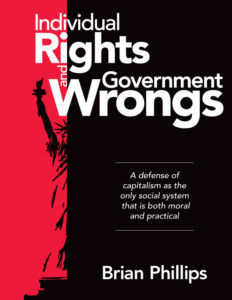This is an excerpt from Individual Rights and Government Wrongs. 
Perhaps no government institution is the object of more jokes and frustration than the United States Postal Service (USPS). Long lines, surly clerks, and “going postal” draw the ridicule of patrons and late-night comedians. Yet, despite the complaints and jokes, any suggestion that the USPS be privatized is met with derision and scorn: How will the citizens in isolated towns get their mail? Won’t greedy businesses raise prices and put the pinch on the poor? And besides, since virtually every government on earth delivers the mail, who could possibly think that private companies could do it better?
The government’s monopoly on mail delivery has existed so long that few can imagine private mail delivery. Yet, there was a time when much of the nation’s mail was delivered by private companies. So, what happened to change this? What are the arguments in favor of the government’s monopoly on mail delivery? Why are private companies prohibited by law from competing with the USPS? Let us begin by looking at private mail delivery in the nineteenth century.
Prior to the Civil War, private letter carriers flourished throughout the United States. In sparsely settled areas of the country, about three hundred “western expresses” provided mail delivery. The best known of these companies was the Pony Express. This historical fact belies the claim that private companies would not provide mail delivery to sparsely populated areas, which is a common argument for the government’s postal monopoly. In the more heavily populated Northeast, two types of delivery companies operated—“locals” and “eastern expresses.” Both the locals and the expresses offered their services for considerably lower rates than the postal service.
Individual Rights and Government Wrongs is now available for FREE. Simply enter your email below and within minutes you can be reading about alternatives the media doesn’t discuss.
